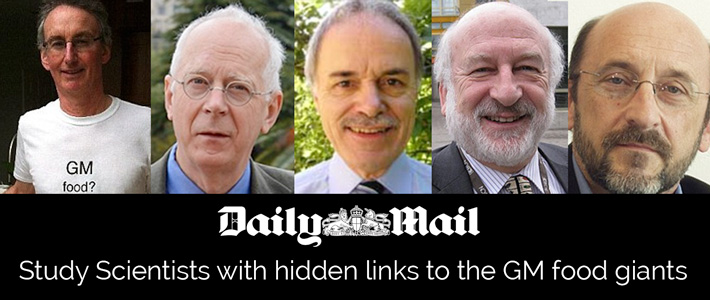Scientists' hidden links to the GM food giantsThe authors of a report calling for GM crops to be fast-tracked into Britain’s farms and kitchens all have links to the industry - though the Science Media Centre presented it as the work of "independent" scientists and it was published by a government advisory body. The scientist authors included Jonathan Jones, who founded a biotech company that has Monsanto as a major client. GM Watch's Claire Robinson was quoted in the Daily Mail as saying: ‘By no stretch of the imagination can these people be described as independent scientists. Their views should be treated with the same scepticism we would apply to any sales pitch." Eve Mitchell of the UK Food and Water Watch said the scientists who wrote the report are “dependent on the GM bandwagon for their livelihood.” The report got further intelligent coverage at farminguk.com Geoffrey Lean of The Telegraph commented that ministers' obsession with pushing GM crops into the UK ignores the problems and lack of benefits they bring.
|
Quotes of the month
"The retraction was clearly based on political and economical interests and pressure, as it does not have a scientifically sound justification. Science is not built upon ‘definitive’ studies. In fact, within a scientific framework, a hypothesis is never definitive; it can always be re-tested and generate new, more robust knowledge. This is what should be done in this case. The article should be reinstated, and its findings can be confirmed or contested by replication and new studies. It is shameful that, in this day and age, commercial interests still have so much influence in scientific publishing." "The excellent work of Professor Séralini and his colleagues should be published in all the independent scientific journals of the world, as a form of protest and resistance against pressure of transnational corporations." "Séralini's study underpins the urgent need of carcinogenic risk assessment of GMO crops, and should never have been retracted from FCT."
|
GMWatch News Review archive
Review 340
- Details














